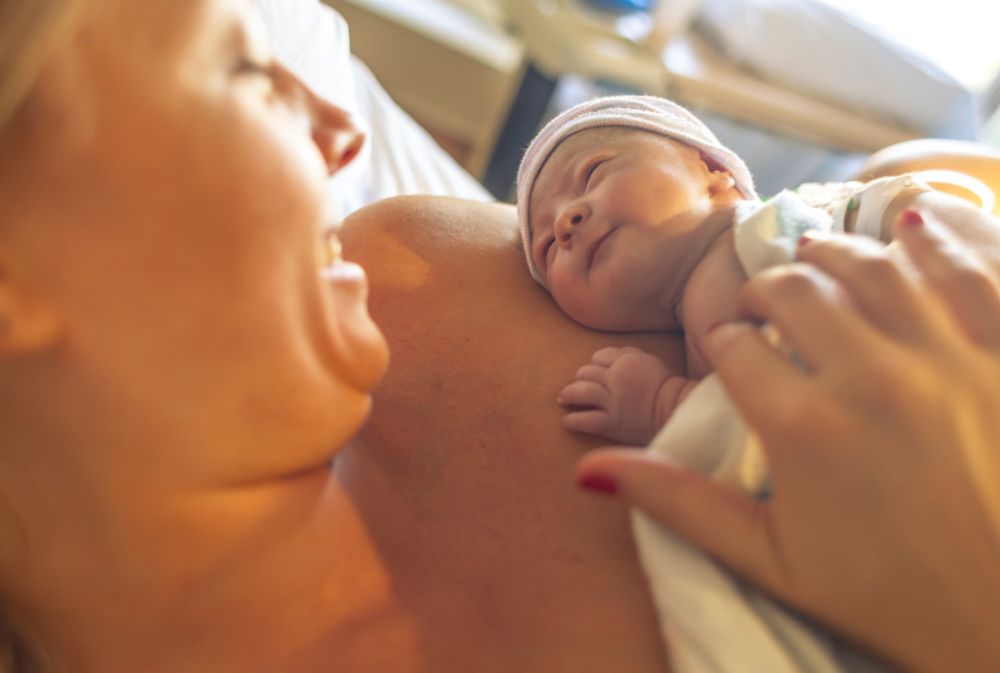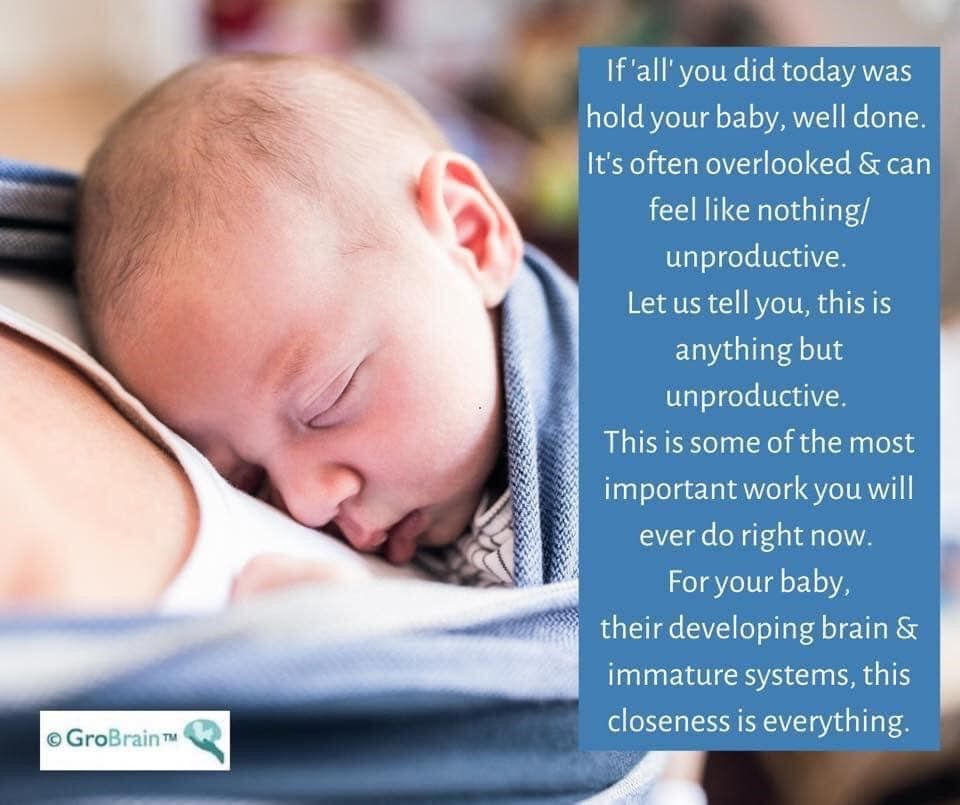Why early skin contact matters
Getting to know your baby
Pregnancy is a time to get to know your unborn baby. This information may give you some ideas to help you respond to your baby, both as your ‘bump’ and then as you welcome your baby into the world at birth. You may have had a scan and seen your baby growing and moving around. Your baby can already hear your voice and other sounds such as music and television programmes, so talking, singing and stroking your bump will all help your baby’s brain development and help you as you start to recognise your baby’s responses. After the baby is born you have some precious time to get to know each other. Early skin contact is a very special time for parents and baby, and mothers can hold their naked baby against their skin in a calm, unhurried environment for as long as possible. If for any reason you are unable to hold your baby straight away, your partner may like to have skin to skin contact with the baby, while your baby adjusts to life outside the womb.
Why early skin contact matters:
- Your body heat will keep your baby warm.
- Your baby can hear your heartbeat as before the birth. This helps to regulate your baby’s breathing and heart rate, and helps to keep your baby calm.
Whether you choose to breastfeed or formula feed, your baby can still be fed whilst in skin to skin contact

Early breastfeeding is very important, and one breastfeed will give your baby some immunity against infection. You may like to do this even if you choose later to formula feed.
For your baby:
Colostrum is specially produced by you for your baby.
Colostrum is the first milk and is made early in pregnancy. It’s yellow, sticky and called ‘liquid gold’. It is rich in antibodies, protein, vitamins and minerals in a very concentrated form. 
Even one feed of colostrum is valuable for mother and baby’s health.
- Giving baby colostrum as a first feed will kickstart your baby’s immune system.
This is especially important during this Covid pandemic.
- Early feeding will also help prevent jaundice developing.
For you:
- Early suckling will release hormones which help your womb to expel the placenta or ‘afterbirth’
- This will minimise blood loss after the birth and reduce the risk of haemorrhage
- The breast feeding hormones also have a relaxing effect helping you to rest well after the birth
Skin-to-skin in NICU
If your baby is in the neonatal unit, ask your midwife about trying some skin-to-skin contact. It has lots of immediate and long-term benefits for premature and low birthweight babies, such as:
- reduced hospital stays
- improved physical growth and development
- improved social development
- improved breastfeeding.
It’s completely natural to feel disappointed or upset if you’re not able to enjoy skin-to-skin contact as soon as your baby is born. But you can start and carry on doing skin-to-skin in the days, weeks and months to come. If you breastfeed, you’ll have plenty of opportunities. Both parents can do skin-to-skin when bottle-feeding too.
This video shows what skin to skin contact can mean to mothers and babies meeting each other for the first time.
Hold me

Hold your baby as much as possible (in your arms or in a sling). When you cuddle your baby, they feel safe and loved. You can’t ‘spoil’ a baby with lots of cuddling – it’s what babies need. You may sometimes feel like you’re always left ‘holding the baby’, but treasure these moments because they’ll be fidgeting and running about before you know it!
Eye contact with your baby

Newborn babies can see, but their vision isn’t very focused. Their eyesight develops gradually over the first few months. By the time your baby is 2 weeks old, you’ll probably notice their eyes following your face.
You can bond with your baby and help them learn to recognise your face by giving them plenty of eye contact and lots of smiles.
Chatter, chatter, chatter
One of the most important things you can do with your baby is hold them close and talk to them calmly every day, as often as you can. You can chat to your baby about anything you like. For example, what you’re doing, what’s around you or what they might be thinking. You can even start reading to them if you like.
You could also try singing to your baby, which helps them tune into the rhythm of language. Eventually, your baby will start making sounds and gurgling back at you. Try repeating the sounds your baby makes back to them, which teaches your baby useful lessons about listening and taking turns in conversion.
Some parents bond with their baby immediately, while others find it takes more time. Here are some ideas for how to spend quality time with the newest member of your family.




